In the scorching heat of Central Florida, maintaining a lush, green lawn can be a challenge. An irrigation system is essential for keeping your grass healthy and providing the necessary moisture it needs, especially during hot weather. However, hot temperatures can cause various problems in irrigation systems, impacting their efficiency and effectiveness.
This article will explore common irrigation system issues that arise in hot weather and offer practical solutions to keep your lawn looking its best.
Clogged Sprinkler Heads
In hot weather, debris such as dirt, grass clippings, and small stones can easily clog sprinkler heads. This blockage prevents water from spraying evenly, leading to dry patches on your lawn. Clogged sprinkler heads can also cause water to pool around the base, which wastes water and can damage your grass.
Identifying Clogs: Regularly inspect your sprinkler heads. If you notice uneven water distribution, weak spray patterns, or no water coming out at all, the head may be clogged. Turn off the system, remove the sprinkler head, and clean it with water and a small brush.
Preventive Measures: To prevent clogs, consider adding a filter to your irrigation system. Regularly check and clean the sprinkler heads to ensure they remain free of debris. Keeping your lawn free of excessive grass clippings and debris also helps reduce the risk of clogs.
Timing Problems
Timing is crucial when it comes to watering your lawn. In hot weather, your lawn needs more water to stay healthy, but incorrect timing can lead to waste and inefficient watering. Overwatering can cause fungal diseases, while underwatering can leave your lawn brown and dry.
Best Time to Water: The best time to water your lawn is early in the morning. This allows the grass to absorb the moisture before the heat of the day causes evaporation. Avoid watering in the evening, as this can promote fungal growth due to prolonged moisture.
Setting Timers: Ensure your irrigation system’s timer is set correctly. Regularly check the settings and adjust them according to seasonal changes. During extremely hot periods, you might need to increase watering frequency slightly. Monitoring local weather forecasts can help you make informed decisions about when to water.
Leaks and Broken Pipes
Leaks and broken pipes in your irrigation system can cause significant water waste, higher utility bills, and uneven watering, leading to brown spots on your lawn. Hot weather can exacerbate these problems, making timely repairs essential.
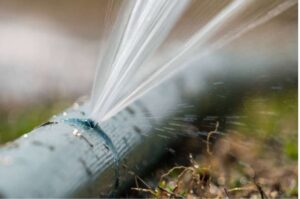
Detecting Leaks: Regularly check your irrigation system for signs of leaks. Look for unusually wet areas in your lawn, low water pressure, or water pooling around sprinkler heads. Checking your water meter before and after a no-use period can also help identify potential leaks.
Fixing Broken Pipes: If you find a leak or broken pipe, turn off the water supply to the affected section. Dig carefully around the pipe to expose it, then cut out the damaged section and replace it with a new piece of pipe. Use appropriate connectors to ensure a watertight seal.
Pressure Issues
Water pressure problems can affect the efficiency of your irrigation system. Low pressure may not deliver enough water to all areas of your lawn, while high pressure can damage sprinkler heads and cause water waste.
Adjusting Pressure: Check if your irrigation system has a pressure regulator. Adjust it to ensure the optimal pressure for your sprinkler heads. For low pressure, check for leaks or clogs in the system that could be reducing water flow. High pressure may require installing a pressure reducer to protect your sprinklers.
Maintaining Consistency: Regularly monitor the water pressure in your system to ensure consistency. Pressure can vary due to municipal water supply changes or seasonal demand. Keeping an eye on pressure readings can help you make timely adjustments.
Inefficient Coverage
Coverage issues occur when your sprinkler system does not evenly distribute water across your lawn. Missed spots can turn brown, while overwatered areas can become soggy and prone to disease. Ensuring your system provides efficient coverage is key to a healthy lawn.
System Layout: Start by reviewing the layout of your sprinkler system. Ensure sprinklers are placed correctly, with proper overlap to cover all areas. Sprinklers should be positioned so their spray patterns intersect, providing even coverage.
Adjusting Sprinkler Heads: Check if your sprinkler heads are pointing in the right direction. Misaligned heads can cause water to miss certain areas. Adjust the heads to ensure even distribution. Consider using sprinkler heads with adjustable nozzles to fine-tune coverage.
Seasonal Adjustments
Hot weather significantly affects your lawn’s water needs. Making seasonal adjustments to your irrigation system can help maintain a healthy lawn without wasting water.
Increasing Watering: During hot periods, slightly increase the watering duration to ensure the roots get enough moisture. However, avoid short, frequent watering, which can lead to shallow roots and weaker grass. Aim to water deeply and less frequently.
Monitoring Weather: Keep an eye on the local weather forecast to anticipate changes in watering needs. If rain is expected, turn off your irrigation system to prevent overwatering. Installing a rain sensor can automate this process, turning off the system when sufficient rain has fallen.
System Upgrades
Sometimes, older irrigation systems may struggle to meet the demands of hot weather, leading to inefficiencies and higher maintenance needs. Upgrading your system can improve performance and water conservation.
Smart Irrigation Controllers: Consider investing in a smart irrigation controller that adjusts watering schedules based on weather conditions and soil moisture levels. These systems can reduce water usage and ensure your lawn gets the right amount of water.
Upgrading Sprinkler Heads: Replace outdated sprinkler heads with more efficient models designed to deliver water evenly and reduce waste. Modern sprinkler heads often have innovative features that enhance performance and coverage.
Drip Irrigation: For specific areas like garden beds or shrubs, consider installing drip irrigation. This system delivers water directly to the roots, reducing evaporation and ensuring efficient water use.
Routine Maintenance
Regular maintenance of your irrigation system is crucial for preventing common issues and ensuring its longevity. Simple upkeep practices can save you from major problems down the line.
Seasonal Inspections: Perform thorough inspections of your irrigation system at the start and end of each watering season. Check for leaks, clogs, and other issues, and make necessary repairs.
Cleaning: Clean the filters and sprinkler heads regularly to prevent clogs and maintain water flow. Removing debris from sprinkler heads ensures they operate efficiently.
Winterization: In areas where temperatures drop significantly in the winter, winterize your irrigation system to prevent damage. Drain the system, blow out excess water, and insulate exposed pipes to protect against freezing.
Managing Water Runoff
Water runoff becomes a significant issue during hot weather, especially when the soil becomes hard and compacted. This leads to inefficient watering as the water cannot penetrate the surface and instead flows off, reducing the amount of water reaching your grass roots.
Soil Aeration: Aeration helps to loosen compacted soil, allowing water to penetrate more easily. Use an aerator tool to make small holes in your lawn, which improves water absorption and reduces runoff. Aerate your lawn at least once a year, preferably in the spring or fall.
Watering Techniques: Employ techniques such as cycle and soak, which involves watering in short intervals to allow the soil to absorb water more effectively. This method reduces runoff and ensures deeper water penetration. For example, instead of watering for 30 minutes straight, water for 10 minutes, wait for 20 minutes, then water again.
Tackling Evaporation
High temperatures in Central Florida lead to rapid evaporation, which reduces the effectiveness of your irrigation efforts. Knowing how to tackle evaporation is essential for efficient water use.
Mulching: Apply a layer of mulch around plants and garden beds. Mulch helps to retain moisture in the soil by reducing evaporation. Organic mulch, such as wood chips or straw, can also contribute nutrients to the soil as it decomposes.

Shade Management: Plant trees and shrubs to provide shade for your lawn, which can help reduce evaporation. Be mindful of the balance between shade and sunlight needed for healthy grass growth. Strategic placement can help keep your lawn cooler and reduce the amount of water lost to evaporation.
Dealing with Irrigation Zoning Problems
Zoning problems occur when different areas of your lawn have different watering needs but are not adequately zoned. This can result in overwatering some areas while underwatering others.
Creating Zones: Divide your lawn into zones based on plant types, sun exposure, and soil conditions. Each zone should have its own irrigation schedule to meet specific watering needs. For instance, shady areas typically require less water, while sunny areas need more frequent watering.
Adjusting Schedules: Use your irrigation system’s controller to set different schedules for each zone. Monitor the health of your lawn in each zone and adjust the watering times and frequencies as needed. This targeted approach ensures each part of your lawn gets the right amount of water.
Irrigation System Upkeep
Regular upkeep of your irrigation system is vital for its optimal performance, especially during hot weather. Many issues can be avoided with proper regular maintenance.
Visual Inspections: Conduct visual inspections of your irrigation system at least once a month. Check for signs of wear and tear, broken or misaligned sprinkler heads, and leaks. Promptly address any issues to prevent them from worsening.
Flushing Lines: Flush the irrigation lines periodically to remove any dirt or debris that may have built up. This prevents clogs and ensures smooth water flow. Turn off the water supply, remove the end caps, and let the water run through the lines for a few minutes.
Consequences of Overwatering
Over-watering your lawn can lead to several problems, including root rot, fungal diseases, and wasted water. It is crucial to find the right balance to keep your lawn healthy.
Root Rot: Over-watering can cause root rot, a condition where roots become waterlogged and start to decay. This weakens the grass and can lead to brown patches. Ensure you are watering deeply but infrequently to encourage strong root growth.
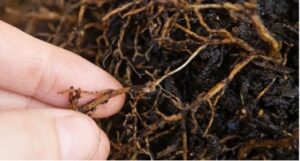
Fungal Diseases: Excess moisture creates an ideal environment for fungal diseases. Signs of fungal problems include discolored or wilted grass and patches of mold. If you notice these symptoms, reduce watering and consider applying a fungicide.
Efficient Irrigation Practices
To achieve the best results from your irrigation system, adopt efficient practices that save water and promote a healthy lawn.
Drip Irrigation: Drip irrigation delivers water directly to the roots of plants, reducing evaporation and runoff. It’s particularly useful for garden beds, shrubs, and trees. This method ensures that water is used efficiently where it is most needed.
Rain Sensors: Installing rain sensors can prevent your irrigation system from running during or immediately after rainfall. These sensors help conserve water and prevent over-watering by automatically adjusting based on natural rainfall.
Smart Controllers: Smart controllers can optimize your irrigation schedule based on weather data, soil moisture, and other factors. These systems adjust watering times and frequencies automatically, ensuring efficient water use.
Master Your Irrigation for a Thriving Lawn
Maintaining a vibrant lawn during Central Florida’s hot summer months requires effective irrigation strategies. By understanding and addressing common irrigation issues like water runoff, evaporation, and uneven watering, you can ensure your lawn remains healthy. Implement techniques like soil aeration, proper zoning, and the use of drip irrigation to maximize water efficiency. Regular system maintenance and choosing the right watering practices also play a crucial role in conserving water and promoting vigorous grass growth.
Healthy soil, properly adjusted mower blades, and the use of mulch are additional steps you can take to retain moisture and reduce water waste. Moreover, preparing for extreme weather conditions such as droughts by adjusting your irrigation planning ensures your lawn stays resilient year-round.
By taking these proactive measures, you’re well on your way to enjoying a lush, green lawn throughout the hot summer months in Central Florida. Proper irrigation practices not only save water but also create a thriving outdoor space that you can be proud of.
Ready to take your lawn care to the next level? Visit Next Level Turf to learn more about our professional irrigation services. Let our experts help you achieve the perfect lawn with tailored solutions designed specifically for Central Florida’s unique climate. Contact us today for more information and personalized assistance.

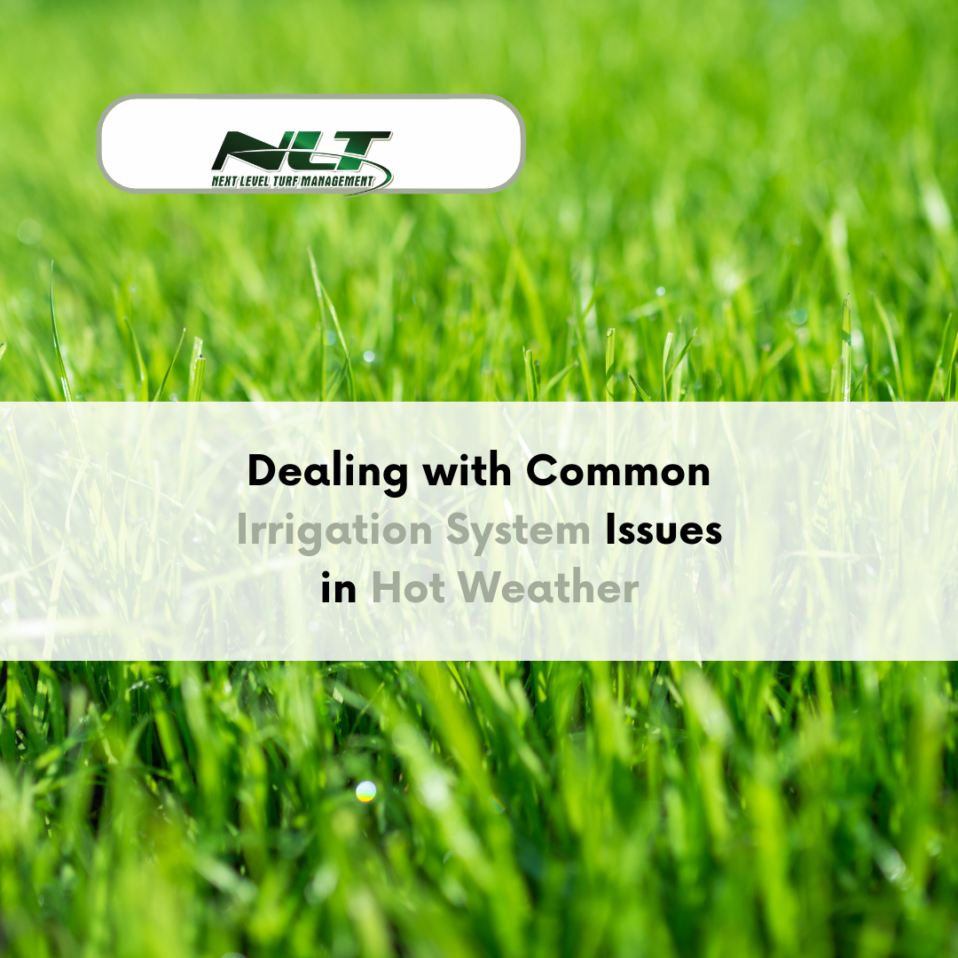
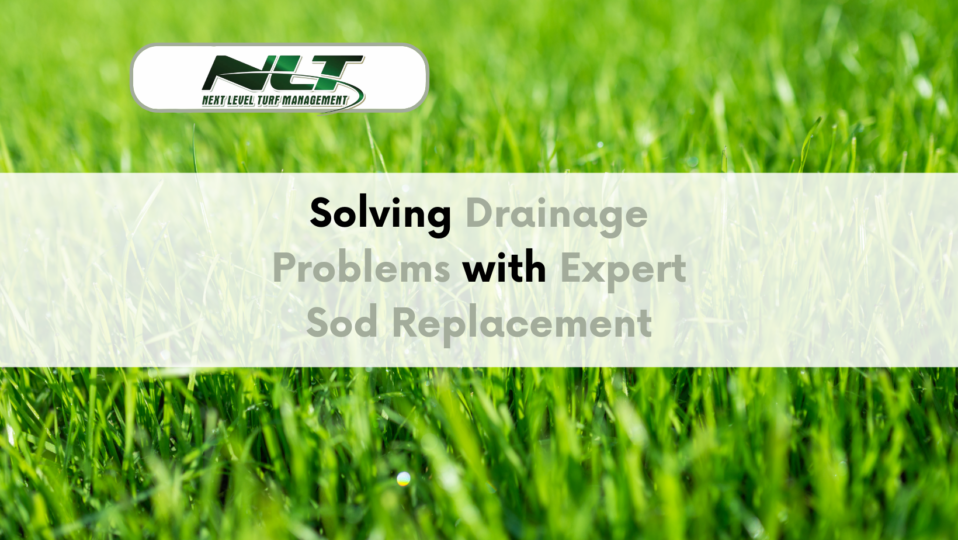
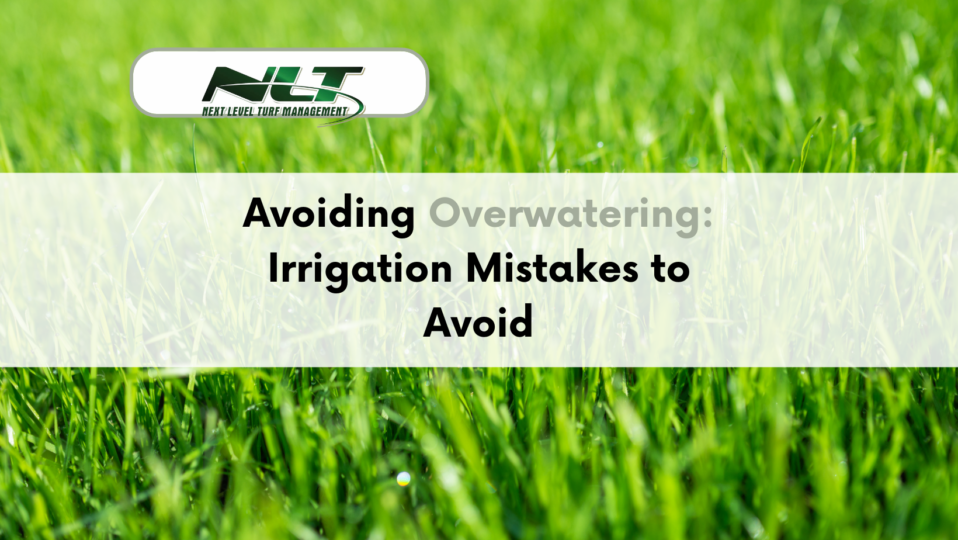
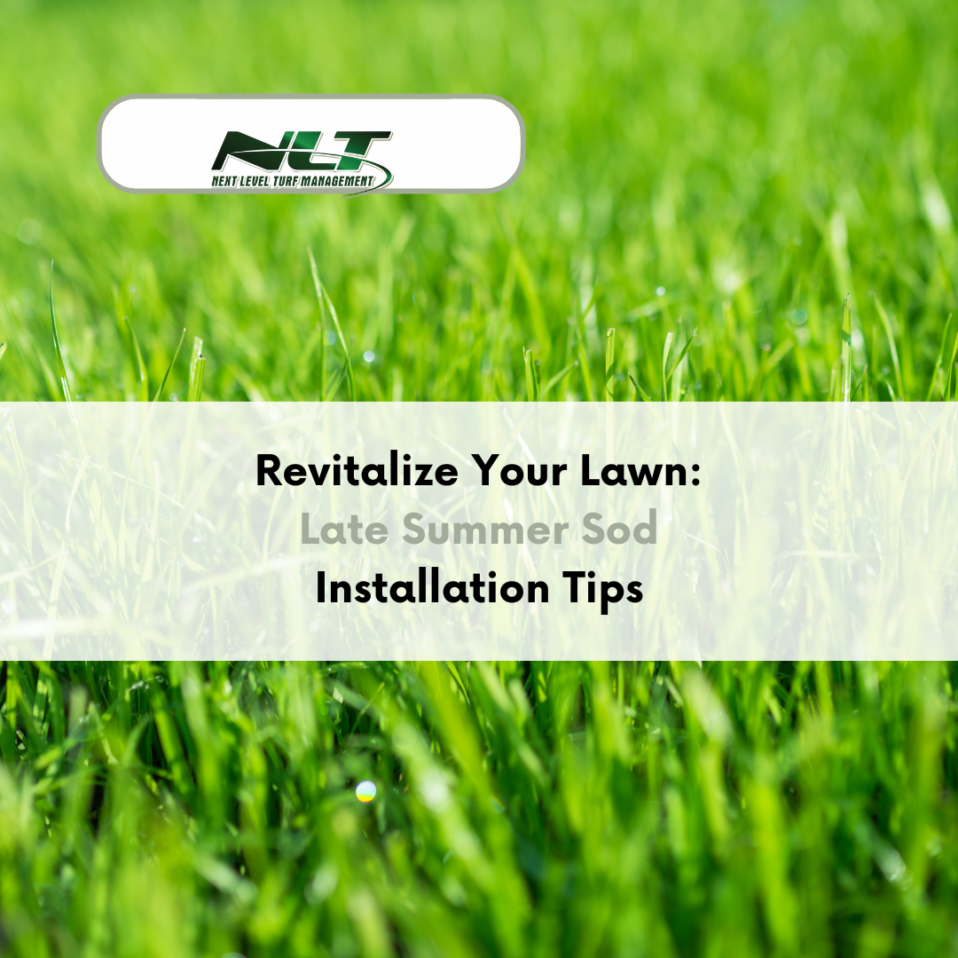


Post a comment